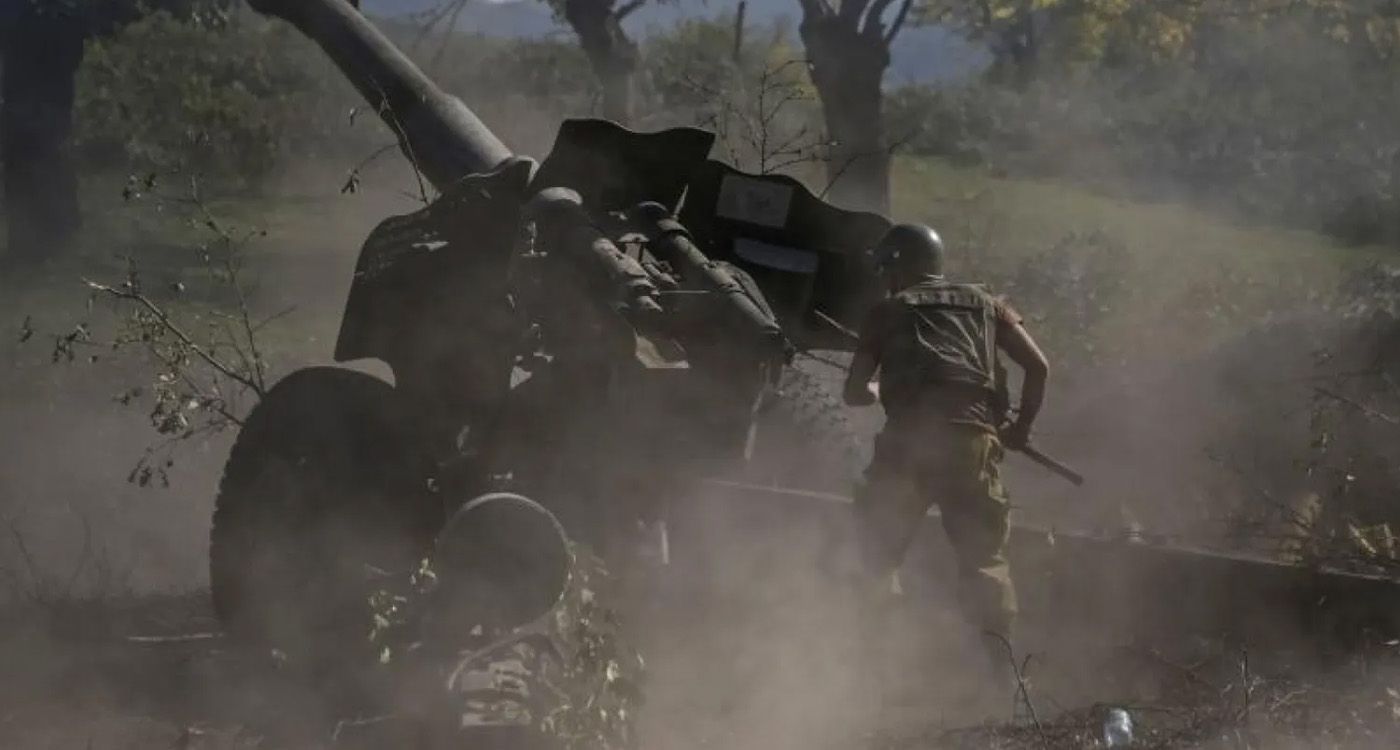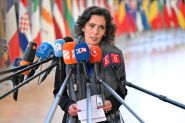- Home
- Middle East
- When Faith Challenges Power: Armenia’s Deepening Rift

©ARIS MESSINIS / AFP
A political bombshell in an already turbulent Armenia. On June 26, Archbishop Bagrat Galstanian, a rising figure in the opposition, was placed in pre-trial detention in Yerevan. As leader of the Srbazan Paykar (“Sacred Struggle”) movement, he stands accused of plotting to overthrow Prime Minister Nikol Pashinyan’s government by force. Authorities allege he acquired weapons and sought to form armed groups to “destabilize the Republic.” Pashinyan, for his part, has denounced a “large-scale conspiracy by the criminal oligarchic clergy,” while the archbishop’s supporters insist he’s the target of a political trial.
The severity of the charges against a senior religious figure marks an unprecedented moment—one that exposes the widening rift between Church and State in a country struggling to define a new social contract.
Church and State in a Bitter Power Struggle
On Telegram, Nikol Pashinyan openly launched the political battle. The Prime Minister spoke of secret armed groups operating outside official channels, which he blamed on Galstanian’s supporters. Meanwhile, the Investigative Committee reported plans for terrorist acts and even the formation of a “transitional government” aiming to take control of the country.
These accusations, firmly denied by the archbishop’s lawyers, come amid a climate of deep mistrust shaped by years of escalating tensions. The Armenian Apostolic Church, bolstered by its historic prestige, has long opposed several government decisions—particularly those concerning the management of Nagorno-Karabakh and the return of territories to Azerbaijan. In 2024, Galstanian led major protests against these compromises, which the government viewed as necessary to avoid renewed conflict.
Tensions rose further in June 2025 when the Prime Minister publicly criticized Garegin II, Catholicos of All Armenians and spiritual head of the Church, after he condemned the government’s handling of the crisis. Pashinyan accused him of making controversial remarks and wielding questionable influence, which only deepened the clergy’s opposition. The Church has since called for the Prime Minister’s resignation.
The Church at the Heart of Armenian Identity
To grasp the full scope of the conflict, one must go back to Armenia’s very roots. As the first country to adopt Christianity as a state religion in the early fourth century, Armenia has made its Apostolic Church far more than just a place of worship. Beyond its spiritual role, the Church has embodied the collective soul of a nation often deprived of a state.
Over the centuries, under Ottoman, Persian, Russian, and later Soviet rule, the Church served as the guardian of traditions, language, rituals, and historical memory. During times of oppression, its monasteries doubled as secret schools, its priests acted as cultural bearers, and its religious festivals provided a refuge for identity. The Church became a continuous thread connecting generations through adversity.
The 1991 Constitution granted the Church a special status, recognizing it as the guardian of national values. This historic role gives it considerable influence, both as a guarantor of continuity and as a symbolic bond holding together a society deeply marked by crises.
At the same time, this moral authority positions the Church as a natural counterbalance, one that strongly influences key issues at the heart of the nation: secularism, social reforms, and geopolitical direction. Its role in political debate divides opinion—seen by some as a defender of tradition, by others as an obstacle to needed change.
The Burden of Defeats and Grudges
The current divide traces back to Armenia’s military defeat against Azerbaijan in the Nagorno-Karabakh war. Between 1988 and 1994, Yerevan had taken control of this predominantly Armenian region at the cost of a bloody conflict. But in September 2023, Baku’s swift offensive upended that balance, triggering the exodus of tens of thousands of Armenians.
The defeat left a bitter taste. Since coming to power in 2018 following the Velvet Revolution, Pashinyan has become the main target of criticism. Through Galstanian and the Catholicos, the Church has condemned his handling of the situation and demanded his resignation. The 2024 return to Azerbaijan of several border villages—seen as a painful compromise—only reignited anger.
Armenian society is divided between those urging to move forward through a pragmatic compromise and those calling for a hardline stance against Baku and Ankara. In this fractured landscape, the Church serves as a powerful voice for popular frustrations.
A Multidimensional Power Struggle
Beyond internal tensions, this crisis plays out against a shifting geopolitical backdrop. Russia, a longstanding ally since the Tsarist and Soviet eras, now faces challenges to its influence. Its lack of response during Azerbaijan’s 2023 offensive in Nagorno-Karabakh sparked feelings of betrayal among Armenians.
Since then, Yerevan has worked to rebalance its alliances. The country has cautiously moved closer to the European Union and the United States, while also opening dialogue with Turkey and Azerbaijan—a move that remains highly controversial and deeply divisive within Armenia.
Some analysts, such as Areg Kochinyan, head of the Research Center on Security Policy in Yerevan, cited by CivilNet and Armenpress, believe that conservative circles close to Moscow may be encouraging the most radical opposition. Armenian authorities have mentioned plans to create “200 autonomous armed units,” although no public evidence has been presented so far. In 2024, a group formed in Russia was already dismantled on suspicion of preparing violent actions.
For the government, these movements pose an existential threat to state stability and the fragile peace in the region. For the opposition and Galstanian’s supporters, they reflect an authoritarian crackdown and a politicization of the justice system aimed at silencing dissent.
A Fractured Social Contract
This crisis has exposed a deeper vulnerability: the fragility of Armenia’s social contract. Since gaining independence in 1991, that contract has rested on a delicate balance between political institutions, the Church, the military, and the public—bound by shared hardship and the defense of the nation. The Velvet Revolution of 2018 had revived hopes for democratic renewal. But military defeats, corruption scandals, and growing political divisions have steadily eroded public trust.
In a country where civil institutions still struggle to take hold, and where faith remains a refuge for a wounded society, the line between religion and politics remains blurred.
Read more



Comments